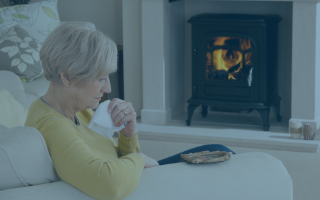 The pandemic has impacted the lives of every individual in different ways, causing untold grief for many. As the Centers for Disease Control and Prevention (CDC) states, “grief can happen in response to loss of life, as well as to drastic changes to daily routines and ways of life that usually bring us comfort and a feeling of stability”. Feelings of grief are not just stirred up by death but unemployment, loss of support services, divorce, loss of friendship, and other major events as well. Grief is a common feeling among humans, but the pandemic is only making it more prevalent and difficult to cope with.
The pandemic has impacted the lives of every individual in different ways, causing untold grief for many. As the Centers for Disease Control and Prevention (CDC) states, “grief can happen in response to loss of life, as well as to drastic changes to daily routines and ways of life that usually bring us comfort and a feeling of stability”. Feelings of grief are not just stirred up by death but unemployment, loss of support services, divorce, loss of friendship, and other major events as well. Grief is a common feeling among humans, but the pandemic is only making it more prevalent and difficult to cope with.
When individuals are dealing with grief, there are multiple potential reactions to this state of mind: shock, disbelief, denial, anxiety, anger, distress, periods of depression, and loss of sleep and appetite. Unfortunately, because of pandemic restrictions, we cannot be physically present with certain family members to be able to detect such signs and reactions. Additionally, if you do experience a significant loss or drastic event, having the ability to grieve with close friends and family may not be possible.
Grieving a loss is evidently more overwhelming than ever, with individuals having existing fears and anxieties due to the COVID-19 pandemic; however, there are still support options available to help people cope.
Although we cannot physically be with family and friends, staying connected using technology (Zoom, FaceTime, Skype, etc.) has never been easier — even for those who are not tech-savvy. Instead of suppressing your emotions, reaching out to loved ones and submitting to the healing process is the first step to moving through the tribulations of grief. This may be fairly challenging, but loss is an innate part of life that must be embraced, not subdued.
Another option, if you find yourself grieving because a loved one’s health is declining, is to consider working with an end-of-life doula. At MAB, our death doula, Brenna Galvin, understands that planning extends beyond the bounds of a law office and requires clients and their loved ones to have critical conversations about their end-of-life wishes. Her clients receive holistic care as they navigate the dying process to take stress off the grieving family’s shoulders, making it as painless and uncomplicated as possible.
